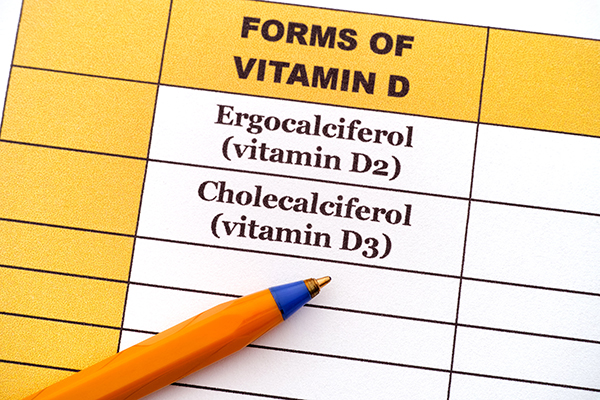New study suggests going vegan for 8 weeks can help turn back your biological clock
08/19/2024 / By Olivia Cook

A recent study suggests that following a vegan diet for just eight weeks may help lower an individual’s biological age. This is being touted as a way to help lower risks for conditions like dementia and diabetes.
The study, featured in BMC Medicine, found that the reduction in biological age was connected to changes in DNA methylation – a process that can influence gene activity without changing the genetic code.
The study was a randomized controlled trial involving 21 pairs of adult identical twins. In each pair, one twin maintained an omnivorous diet – eating both animal- and plant-based foods, along with an egg and one and a half servings of dairy. The other twin adhered to a vegan diet based on plants, such as fruits, grains, nuts and vegetables
Findings showed that those on a vegan diet had a reduction in their epigenetic aging markers, while those on the omnivorous diet did not.
Additionally, the vegan group experienced a decrease in the biological ages of their heart, hormone, liver and inflammatory and metabolic systems. They also lost an average of two kilograms (4.4 pounds) more than the twins on the omnivorous diet, likely due to differences in calorie intake.
The researchers emphasized the importance of further investigation to understand the complex interactions between aging, diet and weight management.
Veganism, which involves eliminating meat and dairy from one’s diet, has become increasingly popular. Since 2008, the number of people identifying themselves as “vegan” in the United Kingdom has surged by 350 percent. The reasons for this shift are diverse – ranging from concerns about animal rights and environmental issues to personal and religious motivations.
A significant number of individuals adopt a vegan diet in pursuit of better health. Evidence indicates that, when properly planned, a vegan diet can offer various health advantages.
For those transitioning from a diet high in animal products, switching to a plant-based diet can bring about notable changes in the body.
Initial changes during the first few weeks of a vegan diet
One of the most noticeable effects of going vegan is a notable boost in energy levels. This improvement comes from eliminating processed meats, which are common in omnivorous diets, and replacing them with nutrient-rich fruits, nuts and vegetables. These plant-based foods enhance the intake of vitamins, minerals and dietary fibers.
Continuing the vegan diet over the next few weeks will see people experience changes to their bowel movements due to the increase in consumption of foods high in fiber associated with the vegan diet
Registered dietitian Jennifer Mimkha notes that many individuals are pleasantly surprised by how easily they lose weight after switching to a plant-based diet. Along with the improvement in the consumption of dietary fibers, the weight loss is also attributed to the lower calorie content of many plant-based proteins compared to meat.
However, the vegan diet’s impact on weight still largely depends on its quality. Consuming “vegan junk food” or excessive simple carbohydrates can lead to weight gain, whereas a balanced and nutritious plant-based diet – particularly if replacing a diet high in saturated fats and processed foods – is more likely to support reasonable weight loss. (Related: Researchers link ultra-processed VEGAN food products to heart disease risk and early death.)
Changes after three to six months on a vegan diet
After three to six months on a vegan diet, individuals may notice that the increased consumption of fresh fruits and vegetables, combined with a reduction in processed foods, can lead to skin improvements and the near-disappearance of skin conditions like acne.
By this time, individuals might see a decrease in vitamin D levels, since this essential nutrient is predominantly found in animal products like dairy, fish and meat. To prevent deficiencies, it is important to consume fortified foods or take supplements, upon the advice of physicians or other licensed health practitioners, especially during the winter months when sunlight is less available.
A well-planned vegan diet that is low in sodium and processed foods in a few months might show significant benefits for heart health, including a reduced risk of cardiovascular diseases, diabetes and strokes.
It must be noted that a vegan diet typically lowers an individual’s intake of nutrients, such as calcium, iron and zinc. While the body can become more efficient at absorbing these nutrients from plant sources, adjustments to diets may also help prevent deficiencies for some individuals, although supplements may be needed to meet the nutritional needs of others.
Long-term effects of a vegan diet
As people reach the six-month to one-year marks on vegan diets, people who have stayed true to these nutrition plans may start to experience a decrease in vitamin B12 levels. This vitamin is crucial for maintaining healthy blood and nerve cells and is primarily found in animal products. A lack of vitamin B12 can lead to symptoms such as shortness of breath, fatigue, memory issues and tingling sensations in the extremities.
To prevent B12 deficiency, incorporating fortified foods or supplements into your diet is essential. Without adequate B12, the benefits of a vegan diet, particularly in terms of reducing the risk of heart disease and stroke, can be compromised. Long-term B12 deficiency can also result in serious, irreversible nerve and brain damage.
As time progresses, typically over a few years, vegans might observe changes in their bone health. Up until around age 30, the body effectively absorbs and deposits minerals into the bones. After this age, bones start to deplete their stored minerals to maintain calcium levels in the blood. Therefore, it’s important to ensure sufficient calcium intake during younger years to support bone health.
While vegetables such as kale and broccoli provide calcium, many vegans fall short of their calcium needs, leading to a higher fracture risk compared to omnivores and vegetarians. Plant-based calcium is also less readily absorbed by the body, so supplementation or consuming fortified foods may be necessary to meet nutrition requirements.
In the long run, maintaining a balanced vegan diet could help individuals maximize the health benefits associated with it.
Although many of the benefits of a vegan diet are well-documented, nutrient deficiencies can undermine these benefits if not managed properly. Fortunately, the growing availability of clean and nutritious vegan food products makes it easier to maintain a nutritious and varied diet. With thoughtful planning, a vegan diet can be a healthful choice.
Watch the following video discussing what happens to the body when people go vegan.
This video is from the Daily Videos channel on Brighteon.com.
More related stories:
6 Nutritious sources of plant protein for vegans and vegetarians.
Vegans may be at risk for iodine deficiency, according to new study.
Plant-based DHA found to adequately meet nutritional needs for vegans and vegetarians.
Sources include:
Submit a correction >>
Tagged Under:
aging secrets, anti-aging, biological age, Diets, fasting, food is medicine, food science, health science, longevity, natural health, natural medicine, nutrients, nutrition, plant-based diet, research, vegan diet, veganism, vegans
This article may contain statements that reflect the opinion of the author
RECENT NEWS & ARTICLES
COPYRIGHT © 2017 PREVENTION NEWS




















